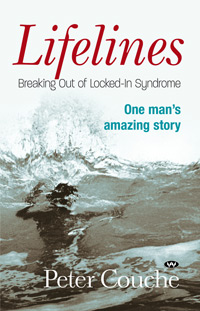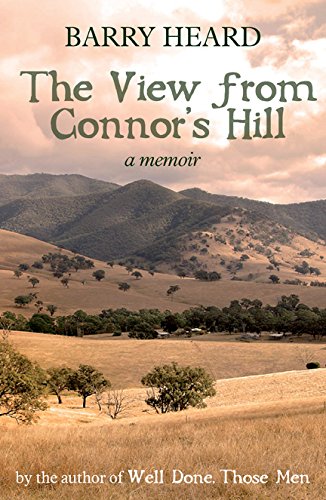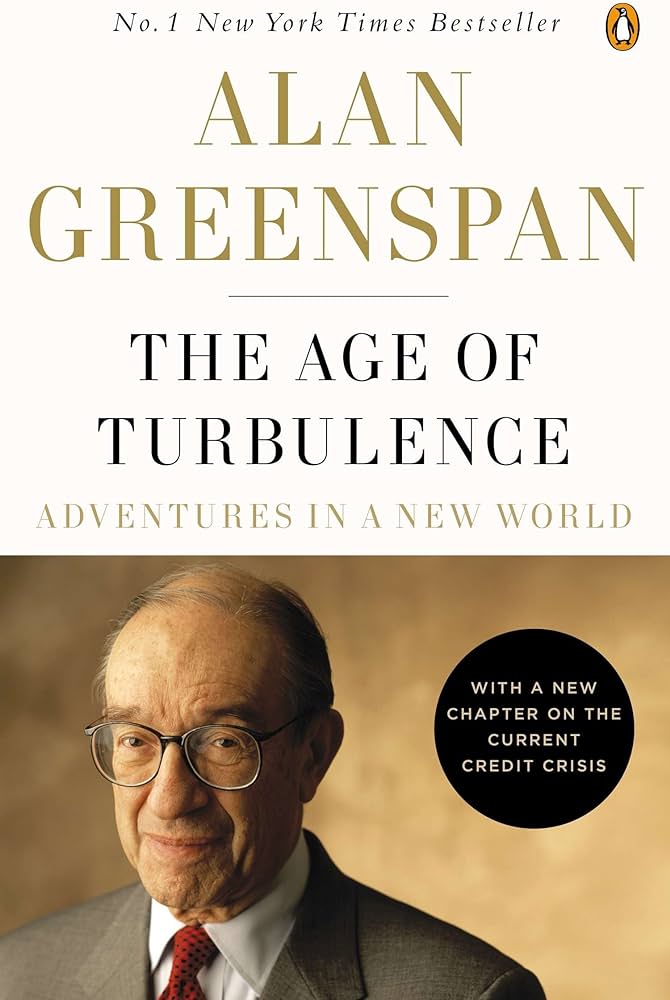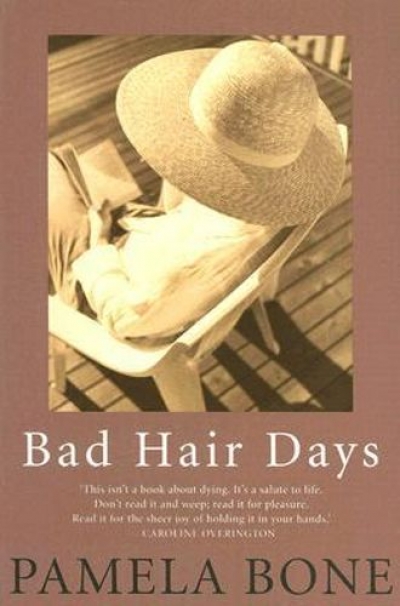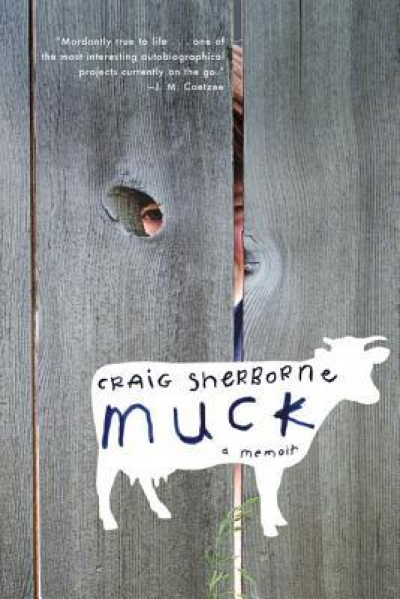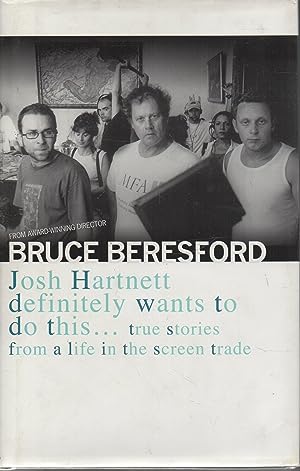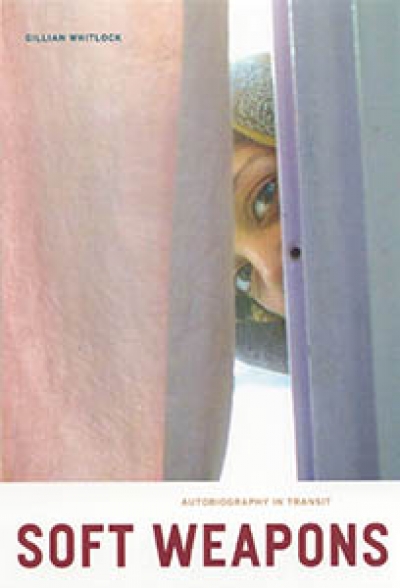Memoir
Lifelines: Breaking out of locked-in syndrome by Peter Couche
As survival memoirs go, Lifelines is unusual in at least one respect. Peter Couche has managed to write this book over a period of thirteen years, while almost completely paralysed and unable to speak after a stroke. With the small amount of movement left in his index finger, he uses a computer to write.
... (read more)'I want to be buried on top of Connor’s Hill, the mountain at the head of the Tambo Valley in East Gippsland.’ These were the words that came into Barry Heard’s mind as he faced death in the jungle in Vietnam in August 1967, an episode recounted in his first memoir, Well Done, Those Men (2005). Later in that book, Heard recalled another near-death experience, when his mind turned again to Connor’s Hill: ‘I was in a warm, soft place that was bright, peaceful and beautiful, like the top of Connor’s Hill. It was where I wanted to be.
... (read more)The Age of Turbulence: Adventures in a new world by Alan Greenspan
Competition, free enterprise and globalisation are regularly criticised today for a range of sins. A counterbalance to such criticism, Alan Greenspan’s view is that continuing the current free-market approach to managing economies is the only way to ensure prosperity in ‘The Age of Turbulence’ in which we live.
Greenspan, now in his eighty-second year, has been a significant participant in, and student of, the global economy for the past sixty years. Based on that experience and the positions he has held, with arguably unique access to information and the best economic minds, his clear view is that the continuous rise in prosperity and living standards in the United States and globally is a direct result of competition, free enterprise and flexible economies, with minimum government interference.
... (read more)Dying: A memoir by Donald Horne and Myfanwy Horne
Eighty-four is a good age. To die then is not a tragedy, or at least no more than that the knowledge we must all die is the great human tragedy (some might think the alternative, to live forever, would be an even greater one). Donald Horne does not consider his death a tragedy, in this account of his dying. What pervades this thoughtful book, written by Donald Horne and his wife, Myfanwy Horne, is the sadness that comes from the endings of things; in this case, the ending of the life they shared. They both know the end is inevitable, but it is no less sad for that.
... (read more)Pamela Bone has written a remarkably brave book. She writes about how the chemotherapy which she underwent after the diagnosis of multiple myeloma in 2004 robbed her of the fearlessness of her life as journalist, human rights activist, feminist, and public speaker. She pays tribute to the late British journalist John Diamond, who insisted that writing about his cancer was not brave at all. Bone disagrees: ‘I think he was very brave. And although he is dead, his voice, with its decency and wit, speaks to me from the pages of his book.’ Bravery, decency and wit are among many words that could equally be used to characterise Bones’s own voice, which mercifully is still strong, always profoundly intelligent and humane as she addresses the big questions of death and dying, poverty and injustice, all the while paying tribute to the love of family and friends, the dedicated and good-humoured care of health professionals, and the kindness of strangers.
... (read more)Sharyn Munro lives alone in a mudbrick house on a mountain near the Hunter River, many miles from the nearest shop or neighbour. In her late fifties, with arthritis slowly encroaching, she attempts to revegetate rainforest gullies, grows her own food and provides a refuge for wallabies, quolls and antechinus. Munro’s memoir, The Woman on the Mountain, sets out to explain this ‘foolhardy’ choice of abode.
... (read more)Reading Tom Keneally is always a delight. As a novelist, he has done much for Australian literature, but his non-fiction is more personable, the product of a sparkling intelligence and keen sense of humour. He is a man with eclectic interests, deeply engaged with the world: both its wonders and its tragedies. One could hardly imagine a less withdrawn artist.
... (read more)If the central, not-made-much-of miracle in Craig Sherborne’s remarkable memoir Hoi Polloi (2005) is the disappearance of the narrator’s childhood stutter after a blow to the head, then the equivalent motif in Muck, Hoi Polloi’s equally fine sequel, is his voice.
... (read more)Josh Hartnett Definitely Wants to Do This: True stories from a life in the screen trade by Bruce Beresford
Bruce Beresford has left a greater imprint on the national sensibility than most people might think. From The Adventures of Barry McKenzie (1972) through The Getting of Wisdom (1977) and Breaker Morant (1980), he has demonstrated a virtuoso ability to dramatise Australianness, classic and modern. His films Don’s Party (1976) and The Club (1980) mean that we are never likely to forget the idiom in which David Williamson first represented us, because Beresford has made it part of the cinematic argot of the country; a new production of a play is automatically measured by how much the actors stand up to the classic performances of Graeme Kennedy or Ray Barrett or John Hargreaves in Beresford’s vision of the plays.
... (read more)Anyone browsing in bookstores in the past five years has undoubtedly come across one of the dozens of life narratives that emerged in the aftermath of 9/11. The attack on the World Trade Centre and the consequent ‘war on terror’ produced a new market for the publishing industry – and it has deluged us with offerings. Prominent among them are the sensational, eroticised best-sellers by Muslim women recounting their persecution under the Taliban; journalistic accounts of war by ‘embedded’ Western news correspondents from Afghanistan and Iraq; edited oral histories offering testimony by refugees to the trauma of war in the Middle East; and memoirs of exile by Iranian women living in the United States.
... (read more)

